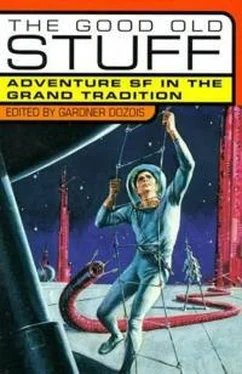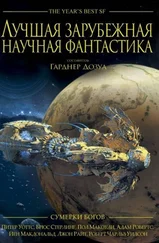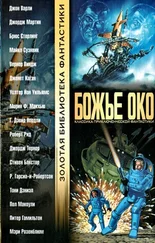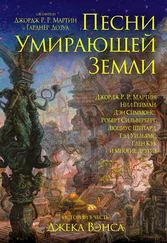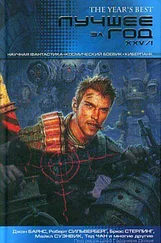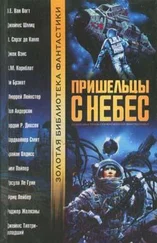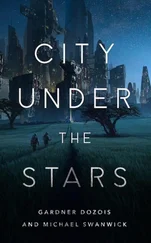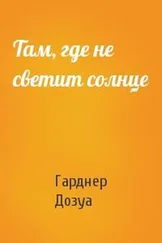Гарднер Дозуа - The Good Old Stuff
Здесь есть возможность читать онлайн «Гарднер Дозуа - The Good Old Stuff» весь текст электронной книги совершенно бесплатно (целиком полную версию без сокращений). В некоторых случаях можно слушать аудио, скачать через торрент в формате fb2 и присутствует краткое содержание. Год выпуска: 1998, ISBN: 1998, Издательство: St. Martin's Griffin, Жанр: Фантастика и фэнтези, на английском языке. Описание произведения, (предисловие) а так же отзывы посетителей доступны на портале библиотеки ЛибКат.
- Название:The Good Old Stuff
- Автор:
- Издательство:St. Martin's Griffin
- Жанр:
- Год:1998
- ISBN:0-312-19275-4
- Рейтинг книги:3 / 5. Голосов: 1
-
Избранное:Добавить в избранное
- Отзывы:
-
Ваша оценка:
- 60
- 1
- 2
- 3
- 4
- 5
The Good Old Stuff: краткое содержание, описание и аннотация
Предлагаем к чтению аннотацию, описание, краткое содержание или предисловие (зависит от того, что написал сам автор книги «The Good Old Stuff»). Если вы не нашли необходимую информацию о книге — напишите в комментариях, мы постараемся отыскать её.
The Good Old Stuff — читать онлайн бесплатно полную книгу (весь текст) целиком
Ниже представлен текст книги, разбитый по страницам. Система сохранения места последней прочитанной страницы, позволяет с удобством читать онлайн бесплатно книгу «The Good Old Stuff», без необходимости каждый раз заново искать на чём Вы остановились. Поставьте закладку, и сможете в любой момент перейти на страницу, на которой закончили чтение.
Интервал:
Закладка:
“Hail Lightfolk, Sundwellers, Fiia friends of men!”
They took her down into the village and brought her into one of their airy houses, the tiny children chasing along behind. There was no telling the age of a Fian once he was grown; it was hard even to tell one from another and be sure, as they moved about quick as moths around a candle, that she spoke always to the same one. But it seemed that one of them talked with her for a while, as the others fed and petted her steed, and brought water for her to drink, and bowls of fruit from their gardens of little trees. “It was never the Fiia that stole the necklace of the Lords of Kirien!” cried the little man.
“What would the Fiia do with gold, Lady? For us there is sunlight in warm year, and in cold year the remembrance of sunlight; the yellow fruit, the yellow leaves in endseason, the yellow hair of our lady of Kirien; no other gold.”
“Then it was some midman stole the thing?”
Laughter ran long and faint about her. “How would a midman dare? O Lady of Kirien, how the great jewel was stolen no mortal knows, not man nor midman nor Fian nor any among the Seven Folk. Only dead minds know how it was lost, long ago when Kireley the Proud whose great-granddaughter is Semley walked alone by the caves of the sea. But it may be found perhaps among the Sunhaters.”
“The Clayfolk?”
A louder burst of laughter, nervous.
“Sit with us, Semley, sunhaired, returned to us from the north.” She sat with them to eat, and they were as pleased with her graciousness as she with theirs. But when they heard her repeat that she would go to the Clay-folk to find her inheritance, if it was there, they began not to laugh; and little by little there were fewer of them around her.
She was alone at last with perhaps the one she had spoken with before the meal. “Do not go among the Clayfolk, Semley,” he said, and for a moment her heart failed her. The Fian, drawing his hand down slowly over his eyes, had darkened all the air about them. Fruit lay ash-white on the plate; all the bowls of clear water were empty.
“In the mountains of the far land the Fiia and the Gdemiar parted.
Long ago we parted,” said the slight, still man of the Fiia. “Longer ago we were one. What we are not, they are. What we are, they are not. Think of the sunlight and the grass and the trees that bear fruit, Semley; think that not all roads that lead down lead up as well.”
“Mine leads neither down nor up, kind host, but only straight on to my inheritance. I will go to it where it is, and return with it.”
The Fian bowed, laughing a little.
Outside the village she mounted her striped windsteed, and, calling farewell in answer to their calling, rose up into the wind of afternoon and flew southwestward toward the caves down by the rocky shores of Kiriensea.
She feared she might have to walk far into those tunnel-caves to find the people she sought, for it was said the Clayfolk never came out of their caves into the light of the sun, and feared even the Greatstar and the moons. It was a long ride; she landed once to let her steed hunt tree-rats while she ate a little bread from her saddle-bag. The bread was hard and dry by now and tasted of leather, yet kept a faint savor of its making, so that for a moment, eating it alone in a glade of the southern forest s, she heard the quiet tone of a voice and saw Durhal’s face turned to her in the light of the candles of Hallan. For a while she sat daydreaming of that stern and vivid young face, and of what she would say to him when she came home with a kingdom’s ransom around her neck: “I wanted a gift worthy of my husband, Lord .... “ Then she pressed on, but when she reached the coast the sun had set, with the Greatstar sinking behind it. A mean wind had come up from the west, starting and gusting and veering, and her windsteed was weary fighting it.
She let him glide down on the sand. At once he folded his wings and curled his thick, light limbs under him with a thrum of purring.
Semley stood holding her cloak close at her throat, stroking the steed’s neck so that he flicked his ears and purred again. The warm fur comforted her hand, but all that met her eyes was grey sky full of smears of cloud, grey sea, dark sand.
And then running over the sand a low, dark creature—another—a group of them, squatting and running and stopping.
She called aloud to them. Though they had not seemed to see her, now in a moment they were all around her. They kept a distance from her windsteed; he had stopped purring, and his fur rose a little under Semley’s hand.
She took up the reins, glad of his protection but afraid of the nervous ferocity he might display. The strange folk stood silent, staring, their thick bare feet planted in the sand. There was no mistaking them: they were the height of the Fiia and in all else a shadow, a black image of those laughing people. Naked, squat, stiff, with lank hair and grey-white skins, dampish looking like the skins of grubs; eyes like rocks.
“You are the Clayfolk?”
“Gdemiar are we, people of the Lords of the Realms of Night.” The voice was unexpectedly loud and deep, and rang out pompous through the salt, blowing dusk; but, as with the Fiia, Semley was not sure which one had spoken.
“I greet you, Nightlords. I am Semley of Kirien, Durhal’s wife of Hallan.
I come to you seeking my inheritance, the necklace called Eye of the Sea, lost long ago.”
“Why do you seek it here, Angya? Here is only sand and salt and night.”
“Because lost things are known of in deep places,” said Semley, quite ready for a play of wits, “and gold that came from earth has a way of going back to the earth. And sometimes the made, they say, returns to the maker.”
This last was a guess; it hit the mark.
“It is true the necklace Eye of the Sea is known to us by name. It was made in our caves long ago, and sold by us to the Angyar. And the blue stone came from the Clayfields of our kin to the east. But these are very old tales, “May I listen to them in the places where they are told?”
The squat people were silent a while, as if in doubt. The grey wind blew by over the sand, darkening as the Greatstar set; the sound of the sea loudened and lessened. The deep voice spoke again: “Yes, lady of the Angyar. You may enter the Deep Halls. Come with us now.” There was a changed note in his voice, wheedling. Semley would not hear it.
She followed the Claymen over the sand, leading on a short rein her sharp-taloned steed.
At the cave-mouth, a toothless, yawning mouth from which a stinking warmth sighed out, one of the Claymen said, “The air-beast cannot come in.”
“Yes,” said Semley.
“No,” said the squat people.
“Yes. I will not leave him here. He is not mine to leave. He will not harm you, so long as I hold his reins.”
“No,” deep voices repeated; but others broke in, “As you will,” and after a moment of hesitation they went on. The cave-mouth seemed to snap shut behind them, so dark was it under the stone. They went in single file, Semley last.
The darkness of the tunnel lightened, and they came under a ball of weak white fire hanging from the roof. Farther on was another, and another; between them long black worms hung in festoons from the rock.
As they went on these fire-globes were set closer, so that all the tunnel was lit with a bright, cold light.
Semley’s guides stopped at a parting of three tunnels, all blocked by doors that looked to be of iron. “We shall wait, Angya,” they said, and eight of them stayed with her, while three others unlocked one of the doors and passed through. It fell to behind them with a clash.
Straight and still stood the daughter of the Angyar in the white, blank light of the lamps; her windsteed crouched beside her, flicking the tip of his striped tail, his great folded wings stirring again and again with the checked impulse to fly. In the tunnel behind Semley the eight Claymen squatted on their hams, muttering to one another in their deep voices, in their own tongue.
Читать дальшеИнтервал:
Закладка:
Похожие книги на «The Good Old Stuff»
Представляем Вашему вниманию похожие книги на «The Good Old Stuff» списком для выбора. Мы отобрали схожую по названию и смыслу литературу в надежде предоставить читателям больше вариантов отыскать новые, интересные, ещё непрочитанные произведения.
Обсуждение, отзывы о книге «The Good Old Stuff» и просто собственные мнения читателей. Оставьте ваши комментарии, напишите, что Вы думаете о произведении, его смысле или главных героях. Укажите что конкретно понравилось, а что нет, и почему Вы так считаете.
